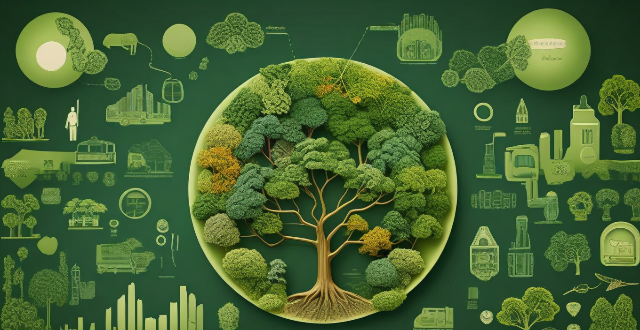Biodiversity is the variety of life on Earth, including ecosystems, species, and genetic variation within species. It plays a vital role in supporting ecosystem services, ensuring food security, providing medicinal resources, enriching cultural heritage, and enhancing resilience to environmental changes. The loss of biodiversity can lead to reduced ecosystem function, increased vulnerability, economic impact, and loss of future options. Protecting biodiversity involves habitat protection, sustainable use, legislative measures, public awareness, and research and monitoring. Conserving biodiversity is essential for maintaining the balance of ecosystems and ensuring that future generations can enjoy the benefits provided by the variety of life on Earth.

Biodiversity and Its Importance
Biodiversity, or biological diversity, refers to the variety of life on Earth, including the diverse range of ecosystems, species, and genetic variation within species. It encompasses all living organisms, from the smallest microbes to the largest mammals, as well as the ecological complexes in which they coexist.
Why is Biodiversity Important?
Key Roles of Biodiversity:
- Ecosystem Services: Biodiversity supports a multitude of ecosystem services that are vital for human survival and well-being. These include pollination, soil formation, nutrient cycling, and climate regulation.
- Food Security: Diverse crops and livestock breeds ensure food security. They provide resilience against pests, diseases, and environmental changes.
- Medicinal Resources: Many modern medicines are derived from wild plants and animals. A high level of biodiversity increases the chances of finding new drugs and treatments.
- Cultural and Aesthetic Value: Biodiversity enriches cultural heritage and provides aesthetic value, contributing to recreational activities and tourism.
- Resilience to Environmental Changes: High biodiversity can make ecosystems more resilient to environmental changes such as climate change, natural disasters, and human impacts.
Consequences of Biodiversity Loss:
- Reduced Ecosystem Function: The loss of biodiversity can lead to diminished ecosystem functions, like reduced water filtration and decreased nutrient cycling.
- Increased Vulnerability: Lower biodiversity makes ecosystems more vulnerable to disturbances and less able to recover from them.
- Economic Impact: Many industries depend on biodiversity for their products and services, such as agriculture, fishing, and tourism. A decline in biodiversity can have significant economic repercussions.
- Loss of Future Options: As we lose species, we also lose potential sources of food, medicine, and other natural products that could be crucial in the future.
How Can We Protect Biodiversity?
1. Habitat Protection: Preserve and restore natural habitats to support native species.
2. Sustainable Use: Encourage sustainable practices in farming, forestry, and fishing.
3. Legislative Measures: Implement laws and policies to protect endangered species and their habitats.
4. Public Awareness: Educate the public about the importance of biodiversity and how individual actions can contribute to its conservation.
5. Research and Monitoring: Support scientific research to better understand biodiversity and monitor its status over time.
In conclusion, biodiversity is a fundamental aspect of our planet's health and human welfare. Its conservation is essential for maintaining the balance of ecosystems and ensuring that future generations can enjoy the benefits provided by the incredible variety of life on Earth.